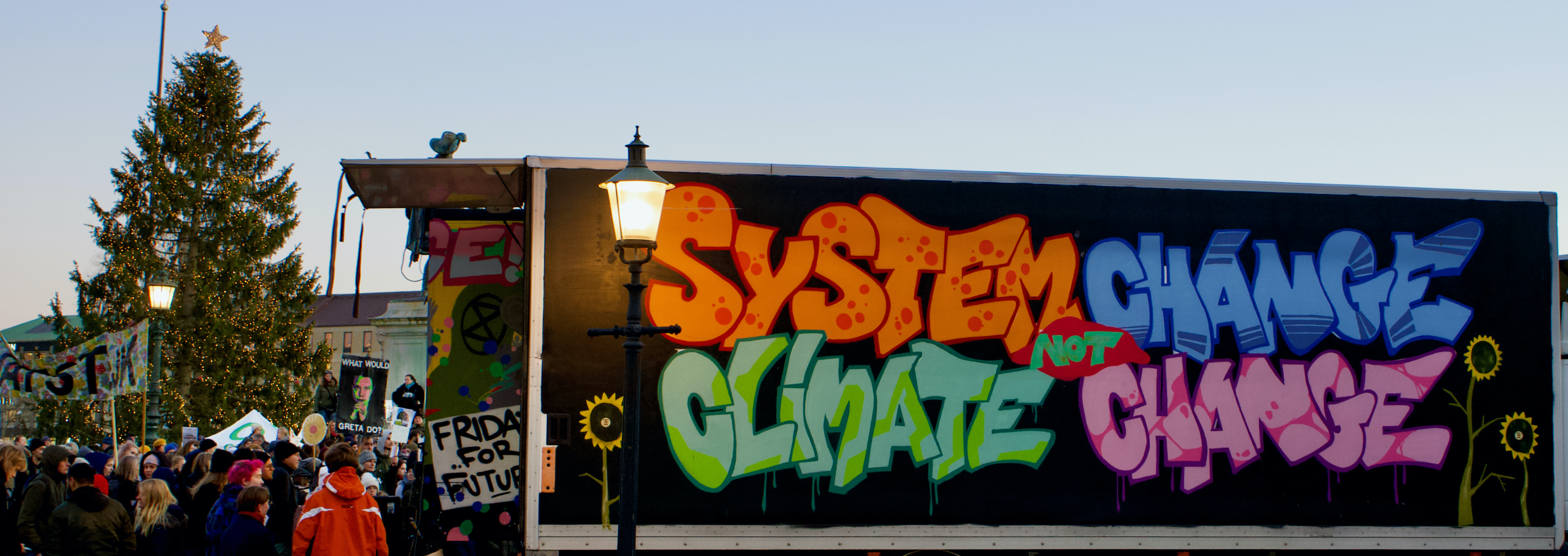
By Sofia Arroyo, Executive Director, EDGE Funders Alliance
As Greta Thunberg has said “our house is on fire”. For years Indigenous elders from the four corners have warned us that “the ice was melting in the north”, social movements from around the globe have been lifting their voices to evidence the stark and ever-growing inequalities inherent to capitalism and the situation in the political arena seems to be polarizing with more and more authoritarian governments rising up everywhere. To top things off, the pandemic has shed a clear and unequivocal light into all the cracks, breaks and crevices of our flawed systems.
The time for a single-issue approach is over. We need to understand the deep interconnected nature of all the crises the world is facing, and we need to do it now. Social movements from all over the globe have known this for a while and have been organizing and developing solutions and policy proposals that actively tackle many issues at once, approaching this systemic crisis with a systemic lens that focuses on justice, equality and well-being for all humans and nature from the ground up.
In June 2020, as the pandemic was settling in, the United Frontline Table, a North American collective comprised of many social movement organizations, published A People’s Orientation Towards Regenerative Economy, a tool with over 80 policy ideas and solutions presented as 14 planks for a Regenerative Economy, based in the concept of a Green New Deal to advance a Just Transition and equitable solutions to the interlinked crises of economy, climate, and democracy.
In Europe, organizations like War on Want, have teamed up with Naomi Klein at The Leap to organize globally around a Global Green New Deal, a people’s plan to build a resilient global economy, based on the principles of a Just Transition and recovery, which guarantees the right to a dignified life for all. This two-year consultation process aims to forge an unprecedented cross-border alliance between the North and the South to collectively develop relationships, communications and polices to address the climate, economic and social justice crises internationally.
In Latin America, several organizations have come together to propose a a Social, Ecological, Economic and Intercultural Pact for Latin America (Pacto Ecosocial del Sur) that aims to agree on a shared path to social change and provide a basis for shared struggles in all the different sectors of our societies to connect redistributive, gender, ethnic and environmental justice.
In the face of so many similar organizing efforts that go beyond environmental issues, regenerative economies or social justice, what is the role of philanthropy then? The sector should always take the lead from social movements. Foundations and philanthropic organizations need to seriously go beyond institutional agendas and issue-based constraints to embrace a systemic approach to the multifaceted crisis we are facing.
We need to join the movements by uplifting, supporting and organizing around the kind of overarching efforts mentioned above, such as the Global Green New Deal, that are about connecting the dots between the different crises, leveraging philanthropy’s influence in other sectors (government, business, academia, etc.) to support policy shifts on a national, regional and international scale. Internally, philanthropy would do well in continuing to find ways to “walk the talk” and implement practices that will support regenerative economic systems, such as joining the divest movement to starve the fossil fuel industry from further investments, ensuring diversity, equity and inclusion within their organization and finding ways to reduce their carbon footprint (if anything, COVID has taught us that we don’t need to travel as much as we think we did).
The world is on fire…not only because of the climate emergency we are facing, but because of the economic, social and political distress we are in as a result of the unequal systems we have created. It is now time to build new systems, from the ground up and rooted in a different way of relating with each other and the natural world; more just and regenerative systems that work for everyone and celebrate diversity and community. There is no time to lose.

Leave a Reply